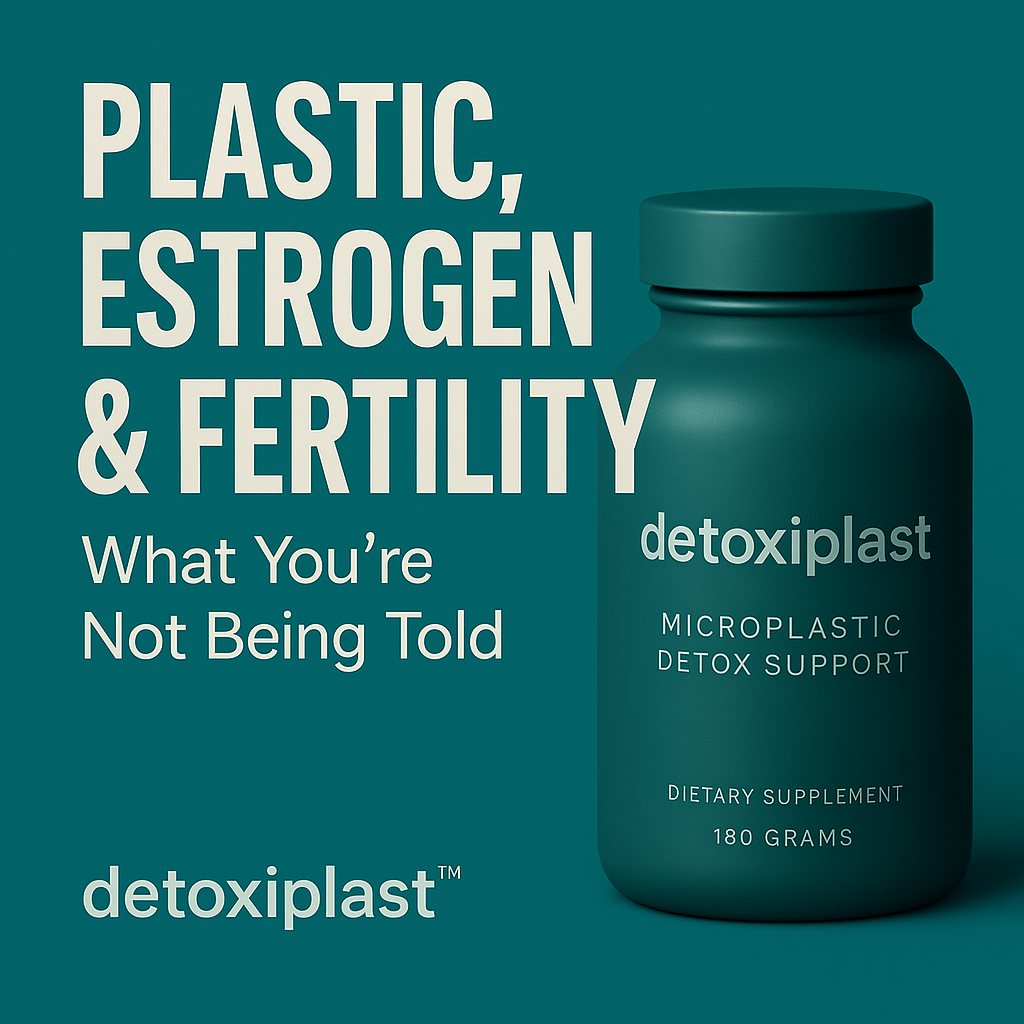
How Plastic Disrupts Hormones and Fertility
Share
Plastics don’t just pollute your environment — they pollute your hormones.
Many plastic products contain xenoestrogens — synthetic chemicals that mimic estrogen in the body. These compounds are found in bottled water, food packaging, receipts, cosmetics, and even clothing fibers.
⚠️ What Are Xenoestrogens?
They’re chemical imposters that bind to estrogen receptors, confusing your body’s natural signaling systems. Two of the worst offenders:
-
BPA (Bisphenol A) — used in plastics and can linings
-
Phthalates — used to soften plastic and found in personal care products
🚨 What Happens When Xenoestrogens Build Up?
-
In Men: Lower testosterone, sperm motility issues, belly fat, mood swings
-
In Women: Hormonal imbalances, irregular periods, PCOS-like symptoms, fertility challenges
-
In Everyone: Thyroid issues, estrogen dominance, breast and reproductive organ sensitivity
Microplastics Carry Hormonal Disruptors
These plastic particles act like delivery vehicles for xenoestrogens — increasing their reach and lifespan in the body. Worse, they embed in fat tissue, glands, and reproductive organs.
🧬 How to Detox Plastic Hormones
To protect your hormones, you need to:
-
Stop plastic exposure at the source
-
Bind and remove plastic particles before they’re absorbed
-
Support detox pathways (liver, gut, kidneys)
-
Rebalance hormone signaling through gut and endocrine repair
Detoxiplast™ to the Rescue
Detoxiplast™ is engineered to bind microplastics and reduce xenoestrogen load by combining:
-
Zeolite + Charcoal – Trap plastic particles and petrochemicals
-
Milk Thistle + Sulforaphane – Protect liver hormone detox pathways
-
Prebiotics + Mushrooms – Restore hormone-regulating gut flora
-
Magnesium + Probiotics – Support endocrine and nervous system balance
You can’t escape plastic in today’s world — but you can stop it from hijacking your hormones.
Explore More from the Detoxiplast™ Journal:
